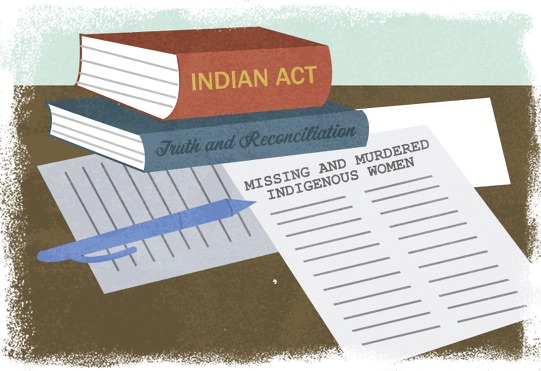
Education course on indigenous issues an important step forward
In 2013, the Faculty of Education at the University of Calgary implemented a mandatory course that Werklund School of Education undergraduate students must take near the end of their degree. The course — EDUC 530: FNMI History, Education and Leadership — explores the history and perspectives of First Nations, Metis and Inuit peoples. The U of C seems excited about this course and with the Eyes Open, Eyes High event taking place on Dec. 3, there is no doubt that this course is something to show off.
As someone who will take this course at the end of my education undergraduate degree, I am proud that I have the opportunity to learn about Canada’s history regarding the treatment of indigenous groups in an effort to pave the way to a more positive future. The role teachers play in the country and around the world has become increasingly important in moulding and shaping the way future generations see the world.
The hardships that indigenous groups in Canada have endured are beyond reconciliation. Residential schools and the affect they had on indigenous families is irreparable and their impact is still seen in indigenous communities. Missing and Murdered Indigenous Women is still an unsolved issue and the unacceptable living conditions on reserves continue to be largely ignored by the government.
Curriculums broadly teach Canadian history from kindergarten to Grade 12, but there are discrepancies in how this history is taught to students. Curriculums often gloss over the facts and while the last residential school in the country was still open less than only 20 years ago, this gross mistreatment of indigenous peoples is seemingly nestled in the country’s deep past.
It is important that future educators learn the facts as a part of their training in order for inconsistencies in how history is taught to come to an end.
In combination with government efforts like curriculum updates and the Truth and Reconciliation Commission report, the educators coming out of the U of C need to be able to teach indigenous issues in an honest way.
Canada’s history shouldn’t be swept under the rug in classrooms anymore. The traumas of the past are recent enough and there are still communities directly affected by the outcome of government policies on indigenous issues.
EDUC 530 co-instructor Yvonne Poitras Pratt says this course is invaluable to future educators.
“In education we really feel educators who are teaching a new generation of Canadians need to understand our full history. If we teach them a biased or sanitized version of Canadian history, we’re not moving forward on a strong understanding of who we are,” she said.
Courses like EDUC 530 prepare educators to teach their students an accurate representation of history and will create a generation of teachers who can discuss indigenous issues with their students. This problem is not just up to a select few to solve. It is a group effort. It’s a small but necessary step to teach those around us.
Teachers have more power than we realize, and it is the responsibility of educators to present students with accurate narratives of the sometimes ugly history.
Courses like this will provide future Canadian citizens the tools to think critically about the world we live in. And with better educated teachers, we stand a better chance of preventing harm in the future.
Rachel Woodward, Gauntlet Editorial Board
